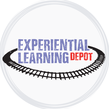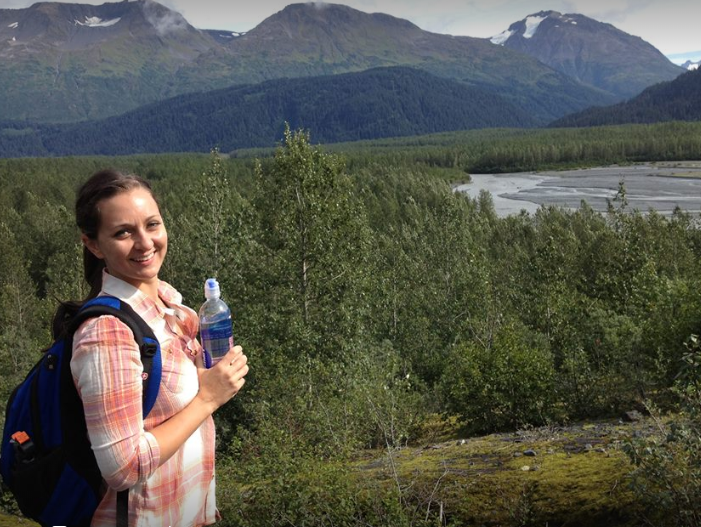|
Experiential learning resources for the innovative educator
As an experiential educator and parent, I understand the significance of introducing my students to career exploration activities and guiding them toward a logical career path, as well as ensuring they have real skills to navigate evolving career landscapes when I’m gone. Let’s talk about career exploration projects that students can apply to their real lives! Did you know that the fastest-growing careers are in healthcare, tech, and renewable energy? This likely doesn’t come as a surprise to you given the state of the world we’re living in. The world is evolving rapidly, so it's critical that young people learn how to navigate and adapt to these changes, particularly when it concerns their careers. “How” is the keyword here. Sure, your students can do some worksheets on career exploration, read some articles, and do a little surface-level research. OR, they can tackle career exploration activities from a real, authentic, and impactful angle. Students can do career exploration projects that not only help them understand the nature of careers in the 21st century, but also help them build the essential skills to adapt, get creative, problem-solve, and critically think when it comes to exploring or choosing a career path for themselves, potentially more than once. Imagine one of your students comes to you today and says “When I graduate I’m going to start my own video rental business!” I’d respond by asking, “How can you learn more about the video rental industry and its outlook?” or saying “Let’s explore that career further”. Video rental is a dying industry. Or is it? (I’m pretty sure it is). Whether it’s a lucrative industry or not isn’t the point, though. You don’t need to know if it is a good idea or a bad one for your students to dig in more. Allowing your students to engage in career exploration activities that incorporate observations, questioning, research, and hands-on experience as they navigate this process themselves fosters skill-building and cultivates independent self-direction. In turn, students become competent in exploring career prospects as the world inevitably continues to change and evolve, with or without you there to hold their hands through it. Sounds too good to be true, right? Well, I assure you it’s not too good to be true. I worked at a project-based high school for 10 years where college and career readiness was heavily emphasized. Career exploration is an essential piece of our senior projects, which are required to graduate. So throughout my time there, I developed a variety of real-world, impactful, and applicable career exploration activities for my students so that they were ready for the world when they were inevitably thrown into it without me. As I walk through these career exploration activities in this blog post, keep the experiential aspect of each career project in mind. Each of these learning experiences focuses on real and tangible outcomes for your students. As a result, these career exploration project experiences do take some time to complete, and that’s deliberate. These career activities go deeper than quick 30-minute exercises. The outcomes, as a result, matter. If the time commitment for all of these career exploration activities is too much, consider trying just one of the career projects to start. I promise the outcomes are worth it! Your students will thank you because they’ll have the tools to make informed decisions about their futures. 6 Career Exploration Activities for High School Students1. Interest-Based Career Exploration Project I like to have my students explore careers from an interest-based angle. The purpose is to help them tap into their passions, strengths, skills, and more and then connect those interests to potential career opportunities down the line. My students take a project-based learning approach to this interest-based career exploration activity. First I like to have my students do some interpersonal digging. They explore their passions and skills and then research potential career paths in line with those interests. Then they deep dive into research about one chosen career of interest. Because I take a PBL approach, students connect with community experts, work with experts in the chosen industry, choose an impactful final product, and create it. Finally, they share their final products and new knowledge about the chosen career with a relevant audience. The career that your students choose to focus on for this particular experience isn’t their end-all-be-all career plan. Just because they’re learning more about the occupation doesn’t mean they're committed to it. An experience like this, grounded in project-based learning, offers your students the chance to develop applicable skills that enable them to explore careers of interest at any point in their lives, and as their interests change and evolve. 2. Career Outlook Exploration PBL I like to have my students do a career exploration activity similar to the interest-based career PBL, but rather than focus on a career of interest, students choose a fast-growing career to examine instead. Students, again, take a project-based learning approach. They start by analyzing career trends. They discover through research which careers have a positive future outlook. For example, specializing in data science is a secure career move right now, whereas a career that can be quickly and more affordably replaced by tech might result in perpetual unemployment (e.g. photo processor). Once students have identified and chosen one trending and quickly growing career of interest, they research that career. They might research training requirements, salary, helpful skills to possess, and more. They can follow a similar PBL roadmap as the interest-based career exploration PBL. In addition to researching the chosen career, I like to have my students interview experts in the industry, put together a job fair booth, and host their own trending careers job fair as a class. 3. Community Action Project Another career exploration project you can facilitate is a career-focused community action project. This is a fun and impactful combination of project-based learning and service learning. Here’s how it works: Students choose a career of interest as the focus of the community action project. Rather than explore that specific career, which they’ve already done in one of the first two career exploration activities, they identify community issues related to that career and take action. The first piece of this career exploration activity requires students to explore a career (which could be based on an interest or career outlook) and examine relevant community issues related to that career. Then students develop a solution to the identified problem that they can realistically act on. They develop an action plan and then take action to solve the identified issue. Let’s go over an example of this career exploration activity: A student might be interested in biking and is skilled at building and/or maintaining bicycles. The student discovers that their city has the highest rate of bike accidents in the country. That is an issue related to the specific career choice for this experience (biking). Through brainstorming, discussion, research, interviews with industry experts, community collaboration, and more, the student develops an action plan to coordinate and host a community bike helmet decorating contest. The student decides to charge an entry fee and sell the finished helmets. They will donate the proceeds to a local bike safety advocacy group. There are so many benefits to a career exploration activity like this community action project example. Students network with those in the industry, make a real impact on the community, and lead a service learning experience, which is an excellent resume builder. 4. Career Portfolio Having students build a career portfolio is another fantastic career exploration activity. A career portfolio is a document that houses career-related experiences and skills. It’s a great place for students to showcase work samples related to careers of interest, volunteer experiences, cover letters, resumes, reference letters, and more. All of the career exploration activities already mentioned in this post are excellent experiences to add to a career portfolio. My students use a digital career portfolio, which is just a Google Slides resource with templates for each portfolio component. For example, there is a slide dedicated to building a resume, another for work samples, and another for volunteer work. The great thing about building a digital career portfolio is that it is easily shareable. Your students have access to the portfolio indefinitely to continue to build and share when needed. 5. Entrepreneurship One of my favorite career exploration activities for students is developing and starting businesses. Entrepreneurship is one of those fast-growing career options that will always be there. Startups aren’t going anywhere anytime soon! One of the reasons I like all of my students to develop and run their own businesses, even if they’re not interested in entrepreneurship, is so that it’s an option for them. Going through the process of starting and maintaining a successful business is a great experience for everyone to go through. This experience promotes adaptability, flexibility, creative problem-solving, budgeting, networking, and critical thinking skills, among others. This is the process my students take: First, they explore business models and ideas. They write a business plan and develop a budget. They create and execute a marketing plan. Finally, they actually launch their businesses! There is so much learning and value wrapped up in this career exploration activity. It’s also a great way for young people to make a little extra cash for college, skills training, or capital for entrepreneurship should they choose to continue in that direction. 6. Resume Builders Finally, let’s talk resume builders! I like to have my students do a variety of career exploration activities that also serve as excellent resume builders. As students build their resumes with these experiences, they can add evidence of these experiences as work samples to their career portfolios! One of my favorite resume-builders is student-led service learning. Students develop and execute their own service-learning experiences. They explore needs in the community, develop plans to meet those needs, and carry out those plans. Not only do students serve their communities, but they demonstrate and build leadership skills. Another resume builder that my students like is starting and running clubs. They have started their own book, crafting, environmental, and robotics clubs, among many others. Again, this experience encourages community-building and leadership. Engaging in career exploration activities like these can be transformative for your students, offering tangible outcomes that they can directly apply to their futures. This gives YOUR students an advantage and confidence as they transition beyond high school. Personally, I didn't have these career exploration activity opportunities in high school, and it certainly had its impact—I'm now onto my third career. While it’s not necessarily a bad thing that I’ve had three different career paths, I lacked the knowledge on how to secure a job, start a business, or make informed career decisions. Providing your students with these opportunities is one of the greatest gifts you can give them! Not all of these career exploration activities are required, but I encourage you to try at least one with your students! Which of these career exploration activities speaks to you? Which ones could your students benefit from? Tell us in the comments! Bundle and Save Student-Led Project-Based Learning Blog Posts: Student-Led Courses: Join our experiential learning Facebook group!
Did you know there is an experiential learning Facebook group? Check that out - Experiential Learning Community for K12 Teachers - and join in the discussion about experiential learning ideas! Find us on social media! Follow Experiential Learning Depot on Pinterest, Facebook, Youtube, and Instagram for more on experiential education, and check out my shop for experiential learning resources. Observe. Question. Explore. Share.
0 Comments
Your comment will be posted after it is approved.
Leave a Reply. |
Blog IntentTo provide innovative educational resources for educators, parents, and students, that go beyond lecture and worksheets. AuthorSara Segar, experiential life-science educator and advisor, curriculum writer, and mother of two. Categories
All
|


















 RSS Feed
RSS Feed